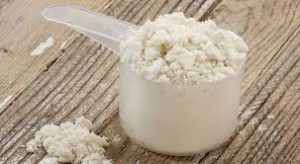With the explosion of new plant-based protein powders in recent years, I feel we’re in the middle of a protein shake renaissance, or maybe a new plant-based protein supplement craze.
But what protein powders are good for you?
And what should you take in a supplement, versus eating a more balanced diet, to help you burn fat and build muscle?
Lately, I’ve noticed my clients coming in with new protein powders such as lactose-free protein, gluten-Free Protein type powders they found in their friends’ pantries, and for sale in grocery stores.
 You must have heard several people stating that they do not drink much milk due to the fact that they do not feel full of milk. This is not true. We are talking about people who do not eat milk on a regular basis or who have a sensitive stomach or allergies. Nowadays, you can easily get a fresh glass of milk in a glass. And that is what you should be consuming. But, remember, a glass of milk should be a meal replacement. Milk contains enough protein and calcium to build a strong and healthy body, but not all protein is a protein.
You must have heard several people stating that they do not drink much milk due to the fact that they do not feel full of milk. This is not true. We are talking about people who do not eat milk on a regular basis or who have a sensitive stomach or allergies. Nowadays, you can easily get a fresh glass of milk in a glass. And that is what you should be consuming. But, remember, a glass of milk should be a meal replacement. Milk contains enough protein and calcium to build a strong and healthy body, but not all protein is a protein.
If you are eating a well-balanced diet and you take milk with each meal, then there is no problem. But, if you are avoiding milk because of the above-mentioned reasons, then you can skip it.
Many people swear by plant-based protein powders, but there are a few common mistakes we can all make. When reading labels, we should be paying attention to the content of protein, the quantity of protein in the product, and the labels on the container. It’s easy to confuse all of these and cause confusion about the use of the product.
Myth: Protein powders are the easiest way to gain lean muscle mass and stay lean
While protein powder may help build lean muscle, many protein powders are extremely high in sugar and often not very nutritious. Most protein powders today are not food-based and can even contain protein hydrolysates, which are created using sugar, milk, and soy protein isolate.
Protein hydrolysates can contain food-based amino acids such as leucine and isoleucine, but they typically lack essential amino acids that you’d find in your own proteins from animal sources. The lack of these essential amino acids can lead to nutritional deficiencies in some cases. For instance, a recent study showed that protein hydrolysate containing essential amino acids did not meet the required protein intake for pre-menopausal women.
Over the years I’ve had clients ask me to use protein powders as part of their weight-loss plan. Many of them go to the store, grab a new protein powder, and throw it in their bags. When I ask them why they say it’s “better” or “healthier” for their body. While protein powders may be more convenient than a meal or meal replacement shake, they’re still calorie-dense and can lead to weight gain when combined with other foods.

